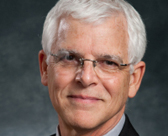The Kingdom and the Spirit

Gene L. Green
Image: Wheaton College
In what way is the kingdom of God manifested in the time between the first and second coming of Jesus Christ? This question has been a prime preoccupation in discussions concerning the kingdom or reign of God. In this investigation we shall take a first step towards an answer by examining the nature of the kingdom. Secondly, we will demonstrate the relationship between the kingdom of God and the Spirit of God in Biblical teaching.
A cursory reading of the Gospels will show that the central message of the preaching of Jesus was the advent of the kingdom of God. He begun His public ministry by proclaiming, “The time is fulfilled, and the kingdom of God is at hand; repent and believe in the gospel” (Mk. 1:15)1 This message, according to Mark, is the “gospel of God” (Mk. 1:14). Luke records that the teaching on the kingdom dominated Jesus’ instruction even in the gap between His resurrection and ascension (Acts 1:3).
While there is a consensus among Biblical scholars that this was the focus of Jesus’ teaching, there has been considerable debate concerning the nature of the kingdom. Some, such as Johannes Weiss and Albert Schweitzer2 have said that Jesus’ teaching was totally concerned with a future, eschatological kingdom. The kingdom would come in the near future and would be a wholly supernatural event. This position has come to be known as “consistent eschatology.”
“To say that the powerful manifestations of the Spirit were for another era is to say that God brought about the initial manifestations of the kingdom, and then reversed that which He had inaugurated.”
Between these two perspectives we find a number of scholars who have recognized that the kingdom has both a present and future aspect in Jesus’ preaching.4 God will exercise His reign in the future, but He has also already begun to do so in the ministry of Jesus. For example, Jesus taught His disciples to pray for the coming of the kingdom (Mt. 6:10), indicating that He understood the kingdom as a future reality. Jesus also spoke of a future time when He would drink the fruit of the vine with the disciples in His “Father’s kingdom” (Mt 26:29; see also Mk. 14:25; Lk. 22: l8, 28-30). The coming of the kingdom was to be an event preceded by the great tribulation (Lk. 21:31), and its advent would coincide with the coming of the Son of Man with power and glory (Lk. 21:27). All these passages indicate that the kingdom of God was, according to Jesus a future reality.
Category: Spirit, Spring 1999


